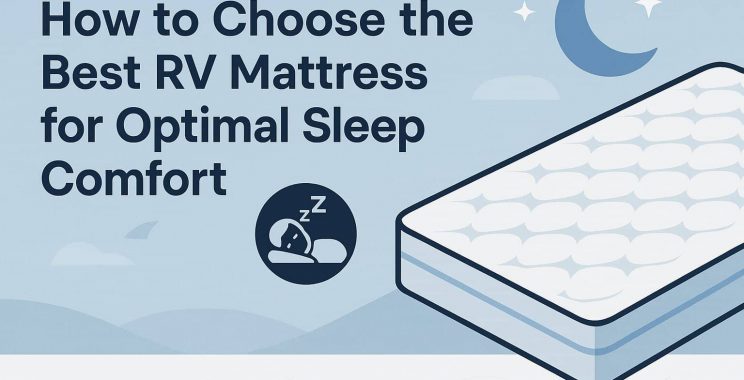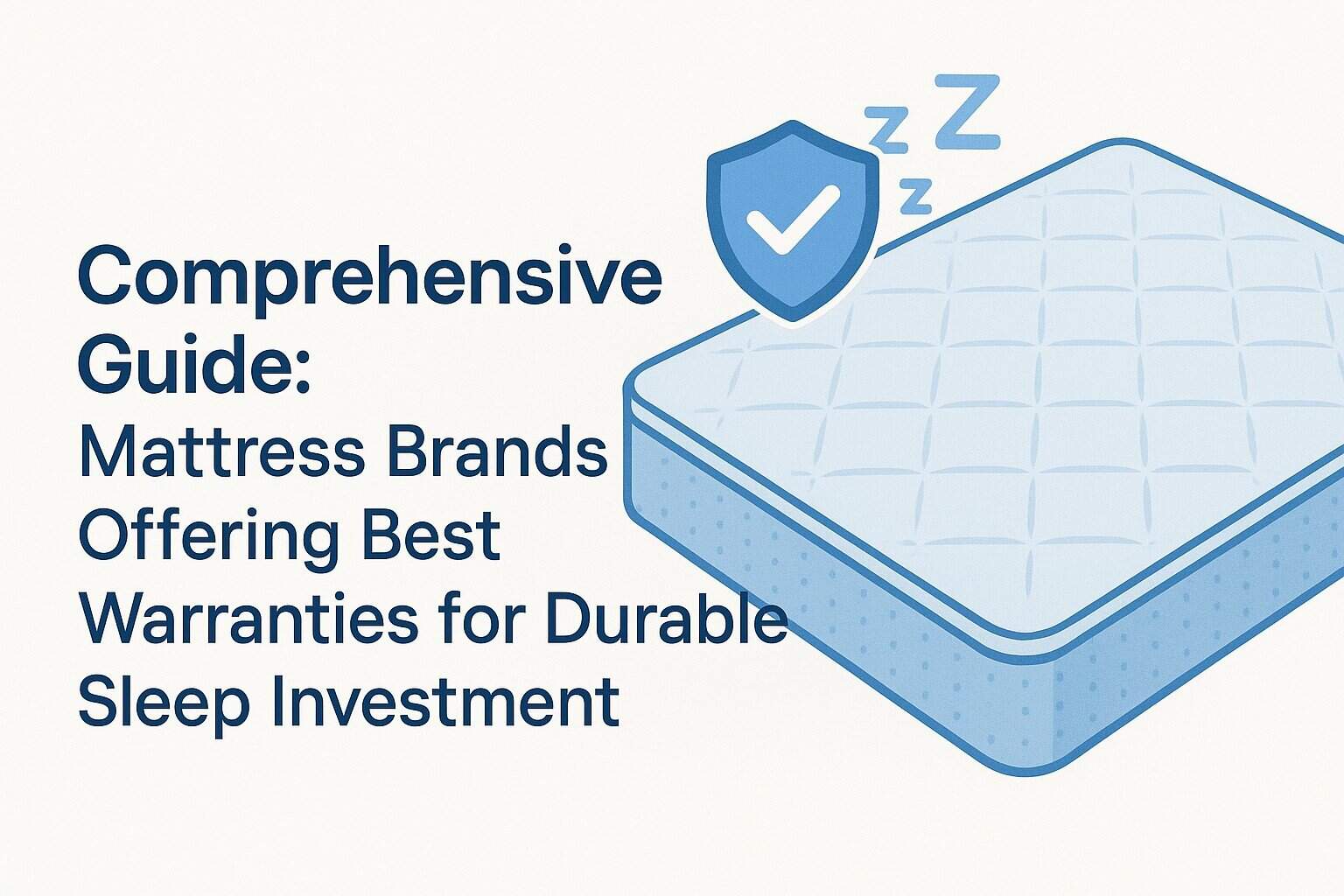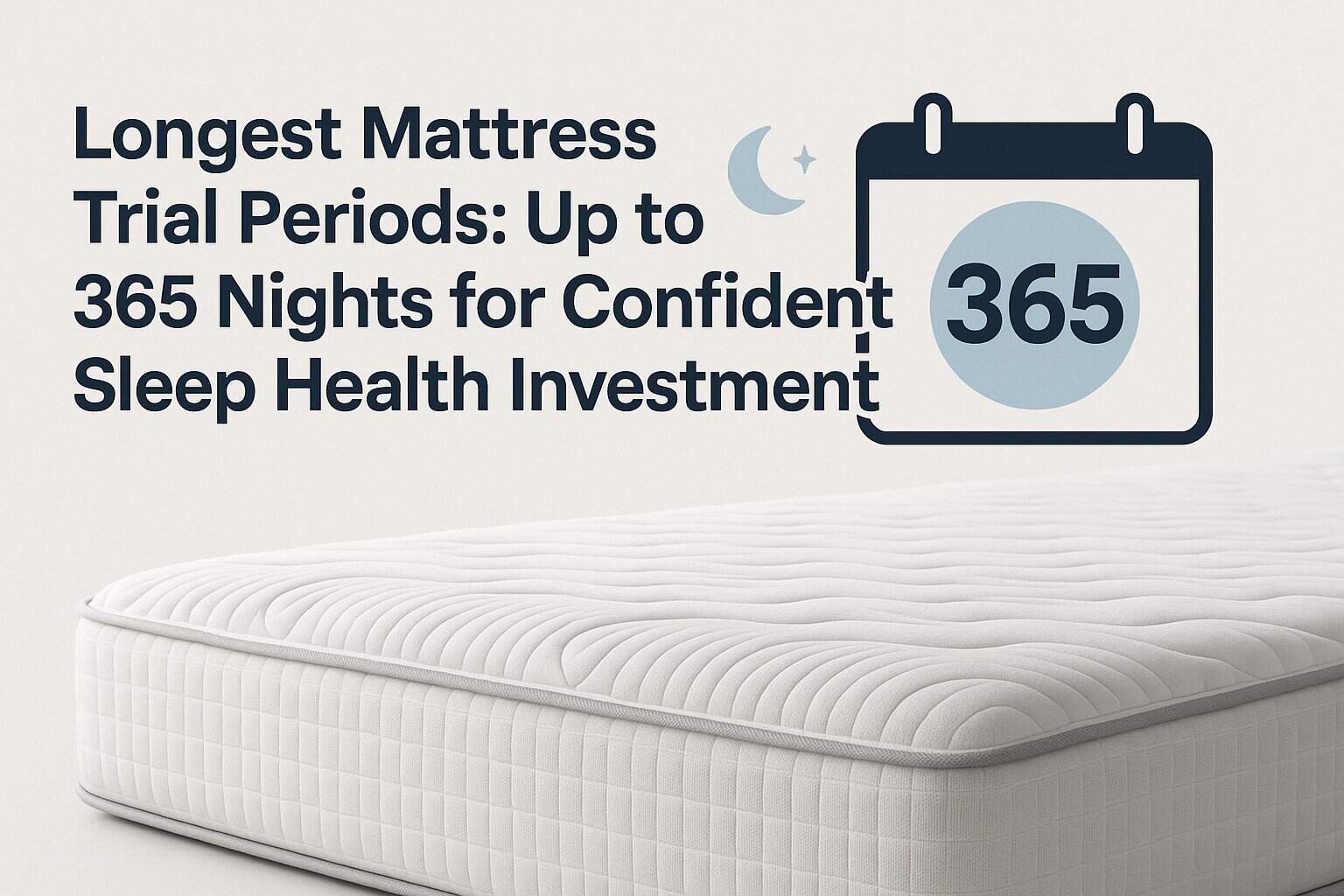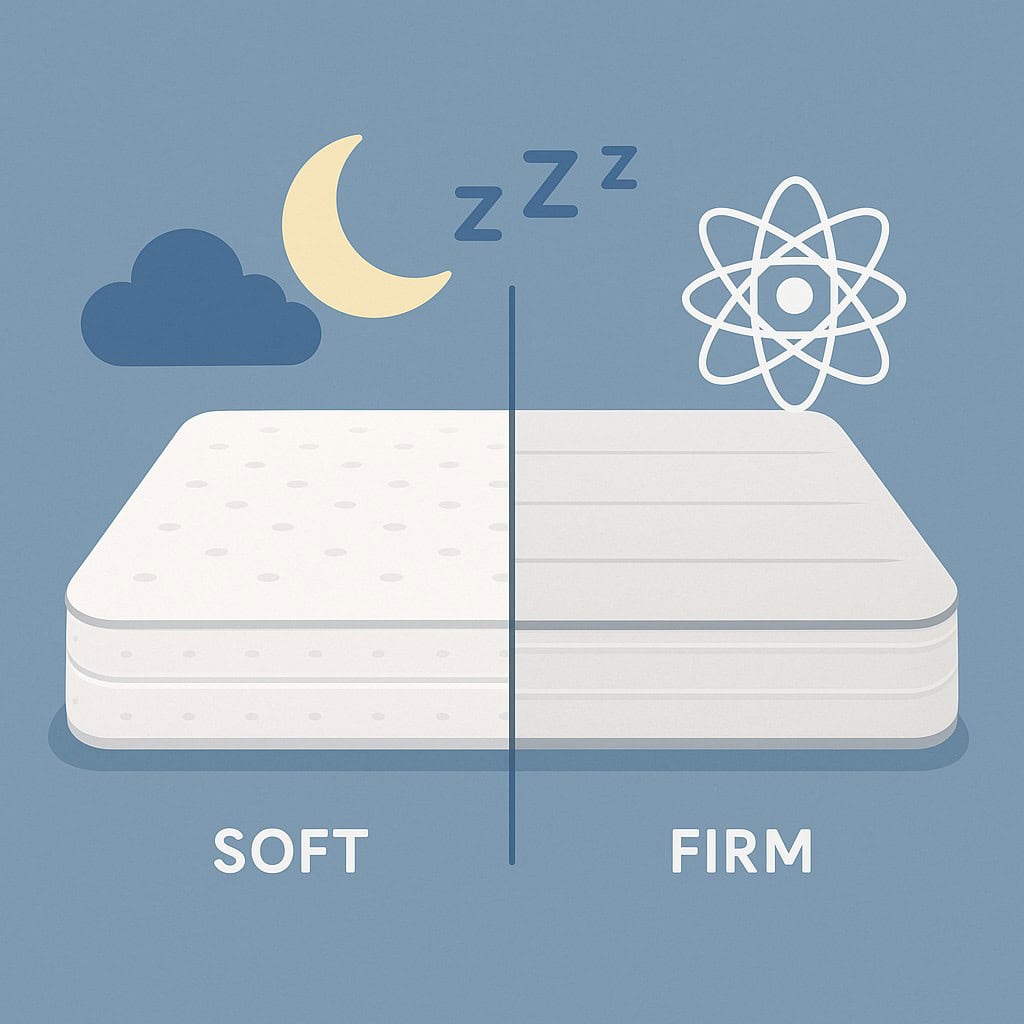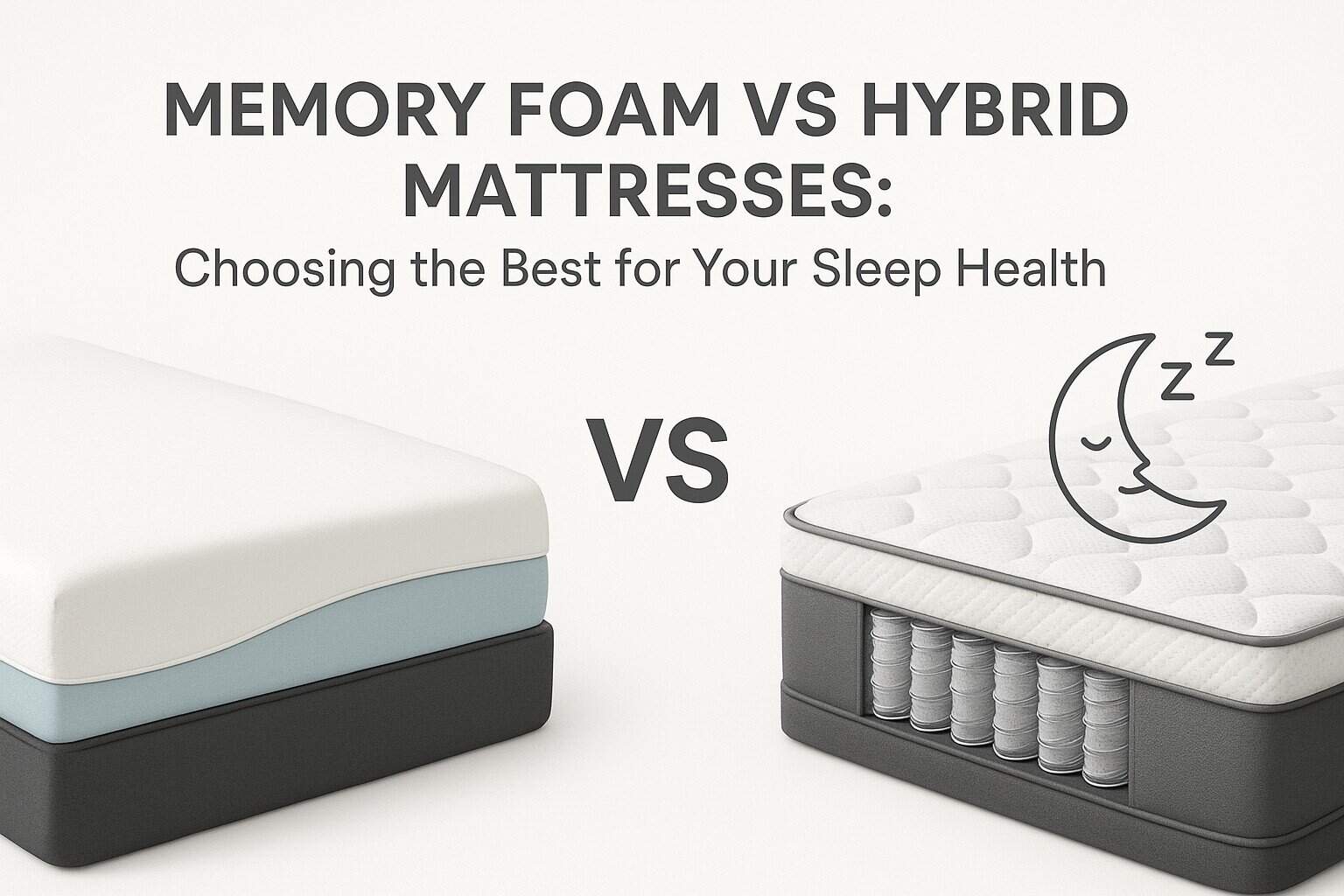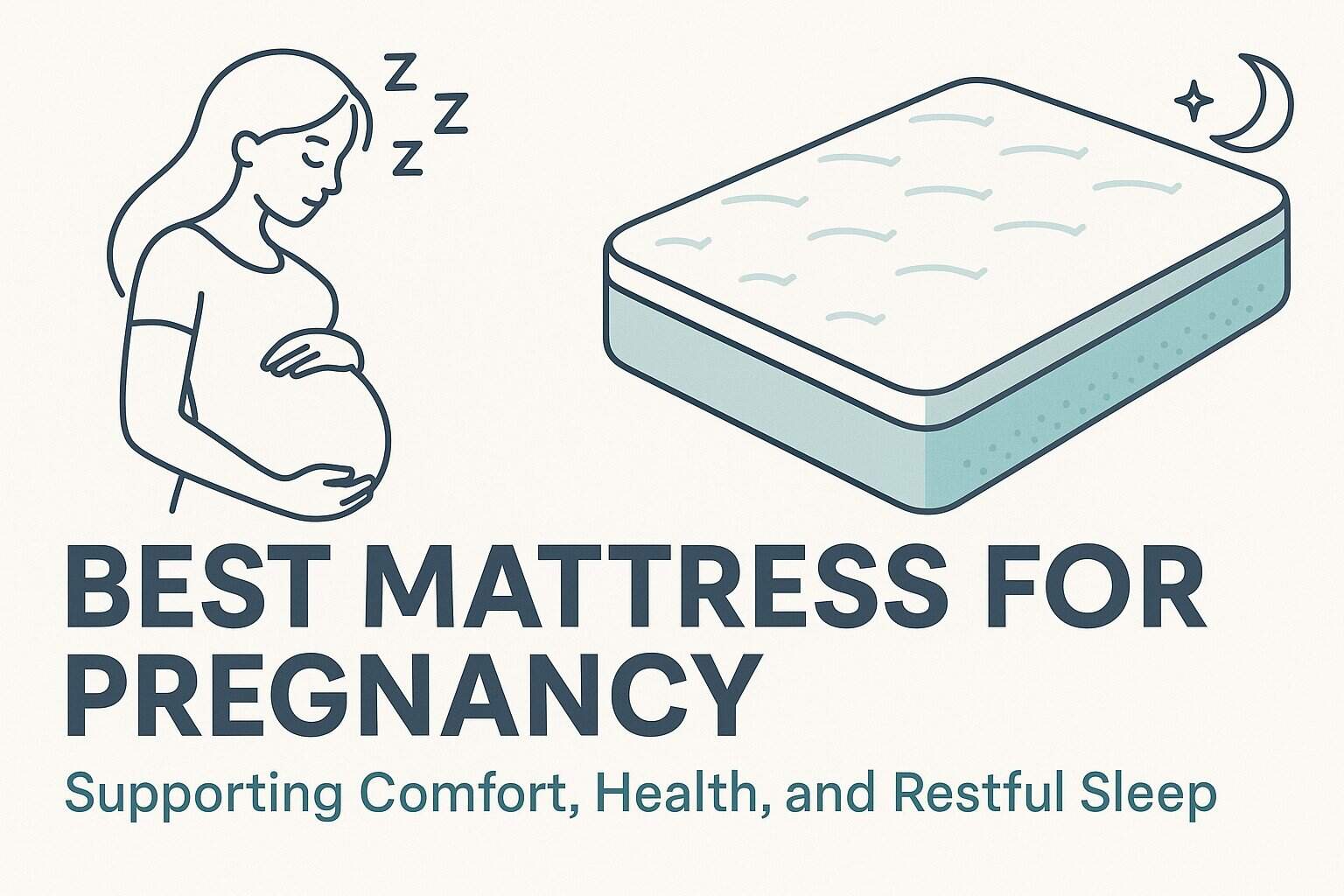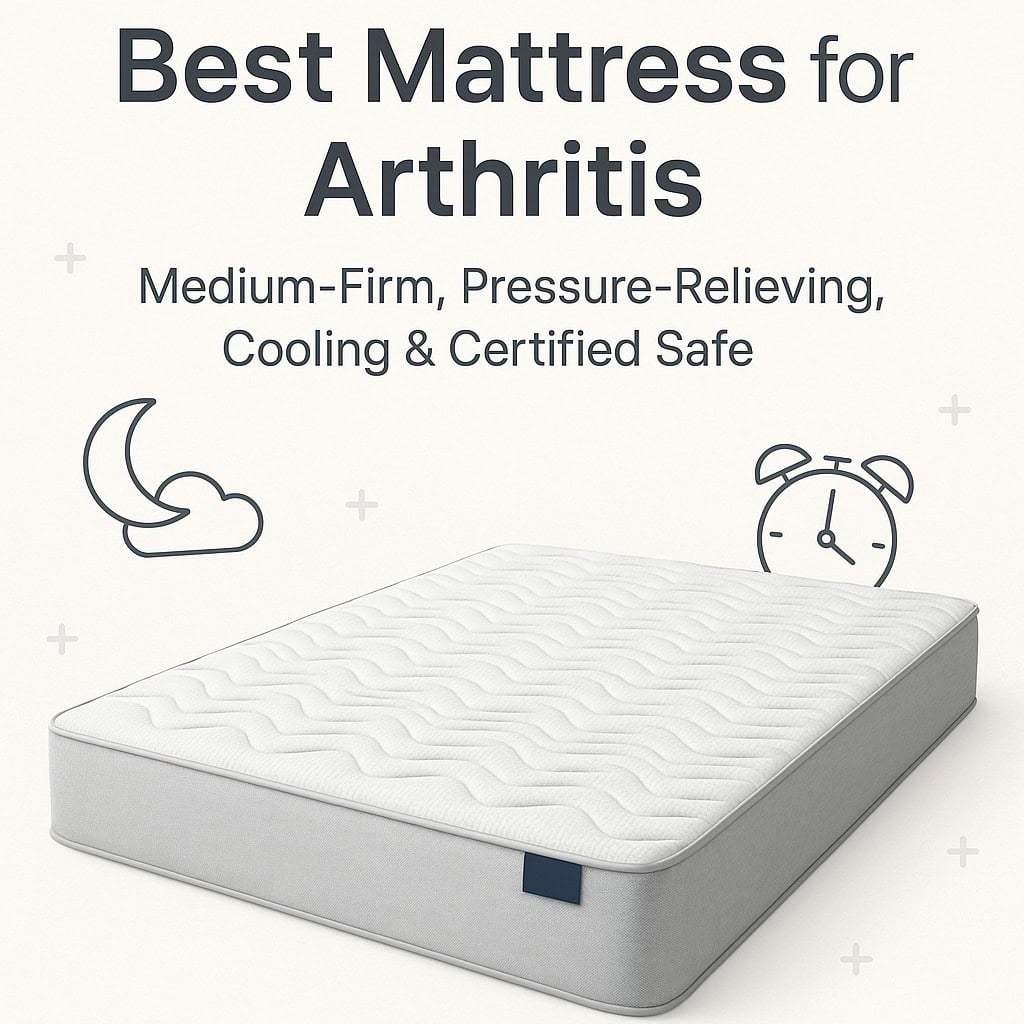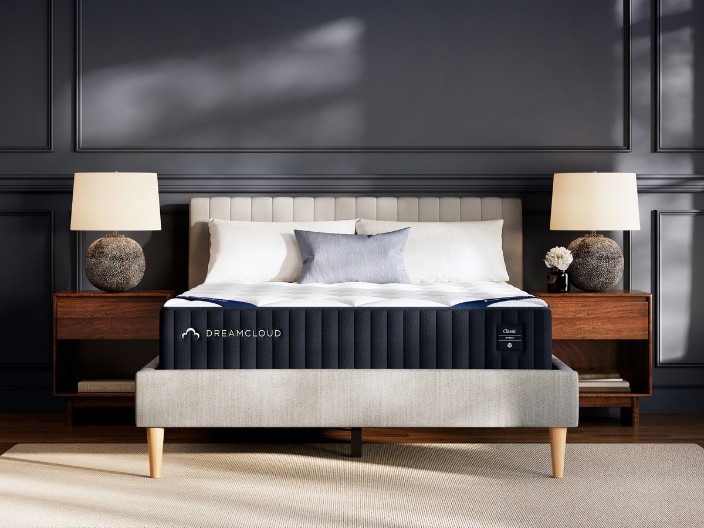How to Choose the Best RV Mattress for The Most Comfortable Sleep
Share
Fact checked
Reviewed by experts
Updated
November 3, 2025
Quick read
6 mins to read
List of Content
Choosing the best RV mattress is a critical decision for anyone who spends significant time on the road, whether they’re looking for weekend getaways or long-term mobile living. The mattress you choose directly affects your sleep quality, spinal health, and overall daytime functioning – which is extra important when you’re adventuring on the road. RV mattresses face unique challenges, including size restrictions, durability demands, and temperature regulation needs. This article provides an evidence-based framework for understanding which RV mattress characteristics matter most, how different mattress types perform in an RV setting, and what sleep science reveals about optimizing your rest for a mobile environment.
Understanding RV Mattress Requirements: What Makes Them Different?
Unlike residential mattresses, RV mattresses often come in non-standard sizes to fit custom spaces, creating challenges for replacement and compatibility. Common dimensions include short queen, RV king, and various tapered slide-out dimensions. This sizing variability requires paying close attention to exact measurements before purchasing.
From a sleep health perspective, several factors become especially important in an RV mattress:
Support and spinal alignment: The mattress must adequately support your spine, especially since RV sleeping areas are often frequently used. Research shows that medium-firm mattresses are best to enhance spinal alignment and reduce back pain [Study: Journal of Clinical Sleep Medicine, 2024]. That said, you should always take into account your specific sleep style and sleep needs when choosing mattress firmness.
Pressure relief: Given the limited space to reposition frequently, cushioning that relieves pressure points like your shoulders, hips, and lower back can improve sleep continuity [Study: National Sleep Foundation, 2020]. Look for high quality memory foam or other pressure-relieving qualities.
Temperature regulation: RV interiors can experience greater temperature fluctuations than most bedrooms. Mattress materials that promote breathability and moisture wicking are valuable for maintaining thermal comfort, which is essential for sleep quality [Study: Applied Ergonomics, 2018].
Durability and weight: RV mattresses need to endure frequent travel vibrations and varying use conditions. Weight considerations are also crucial here, as heavier mattresses affect vehicle fuel efficiency and balance.
Types of RV Mattresses: Foam, Hybrid, Latex, and Their Pros and Cons
Memory Foam Mattresses in RVs
Memory foam mattresses respond to your body’s heat, contouring closely to every sleeper’s shape. This helps distribute weight evenly and reduce pressure points, promoting comfort in confined spaces typical of RVs. Additionally, foam’s ability to absorb motion disturbance has been known to enhance partnered sleep – especially in tight quarters.
Traditional memory foam has a reputation for retaining body heat thanks to its dense cellular structure. Using gel-infused memory foam layers or breathable covers with cooling fibers can mitigate this effect, improving ventilation and temperature regulation.
Memory foam mattresses generally have moderate weight and can be custom-cut to unusual RV sizes. You should always ensure that your mattress is comprised of CertiPUR-US certified foam, which ensures low emissions and foam safety. While always important, it’s especially crucial when you’re sleeping in confined RV environments with limited ventilation.
Hybrid Mattresses Featuring Coils and Foam
Hybrid mattresses combine an innerspring coil base with upper foam layers. This design offers the pressure-relieving benefits of foam with enhanced support and airflow from the innerspring system. Individually wrapped or pocketed coils reduce motion transfer, which is definitely a notable benefit in small sleeping spaces.
Hybrids typically weigh more than all-foam mattresses, so take that into account if you’re trying to minimize load. Their thickness can also pose fitting challenges in non-standard RV sleeping areas. However, if support and longevity are some of your priorities, hybrids are going to be your best option.
Natural Latex Mattresses as an Eco-Friendly Option
Latex mattresses use natural or synthetic rubber foams, with organic options crafted from GOLS-certified latex and organic fibers. Latex offers resilience, responsiveness, and natural breathability, all of which are traits ideal for fluctuating RV temperatures. Latex also has inherent antimicrobial and hypoallergenic properties, reducing exposure to dust mites and allergens. Again, this is especially important when in a mobile setting that’s prone to environmental diversity.
The natural buoyancy of latex ensures consistent support without the sinkage common in foam, facilitating easier movement and maintenance of spinal alignment. Latex beds tend to be heavier and less customizable in size, but they’re valued for durability and resistance to compression over time.
Considerations for Budget-Friendly RV Mattresses
For many RV owners, cost constraints are real. Look for a budget mattress that still uses CertiPUR-US certified foams – so you don’t have to sacrifice on safety to get the price you’re looking for. Brands like Siena demonstrate that memory foam and layered support foams can deliver adequate comfort and support without premium pricing.
Lower-cost options may sacrifice some advanced cooling features or organic certifications, so it is essential to balance price with your personal health needs and sleep quality priorities. Even within budget ranges, emphasis on proper support and minimizing heat retention improves long-term satisfaction and restfulness.
Size and Fit: Matching RV Mattress Dimensions to Your Vehicle
RV mattresses come in a variety of non-standard sizes, including shortened or uniquely shaped mattresses adapted to slide-outs and bunk spaces. Typical sizes include short queen (60″ x 75″), RV king (approximately 72″ x 80″), and many custom sizes that do not align with standard residential dimensions.
The importance of precise mattress fit cannot be overstated. A mattress that is too large or small will cause discomfort, reduce proper support, and may damage the vehicle interior or mattress integrity. It also complicates replacement and bedding accessory availability.
We recommend measuring your sleeping area carefully and confirming mattress dimensions before ordering. Custom mattress manufacturers and foam cutters can accommodate unusual sizes for memory foam or latex products, while hybrid and coil mattresses might require pre-manufactured options due to coil construction constraints.
Temperature Regulation: How Mattress Materials Influence Sleep Thermal Comfort in RVs
Thermoregulation during sleep is critical to sleep quality. The body’s core temperature naturally decreases to initiate and maintain sleep, a process that can be disrupted by overheating or excessive sweating during the night [Study: Sleep Health Journal, 2019].
In RV environments, temperature swings and limited airflow are sure exacerbate this challenge. Foam mattresses often include gel-infused layers designed to draw heat away from the body, while hybrids rely on coil layers to facilitate airflow through the mattress core, dissipating heat effectively.
Natural fibers in mattresses such as organic wool and cotton offer inherent moisture-wicking and temperature-regulating properties. Wool fiber regulates humidity by absorbing and releasing moisture, helping maintain a stable sleep microclimate.
Durability and Weight: Balancing Comfort and Practicality for Mobile Sleep
RV mattresses endure movement, vibrations, and varying humidity and temperature conditions, requiring resilient construction. Foam mattresses with high-density cores and hybrid mattresses with robust coil bases generally provide better durability over time.
Weight management is a key practical concern, affecting fuel efficiency and vehicle handling. Foam mattresses are generally lighter than hybrids or latex, so they might be a good option here.
Choosing a mattress that balances durability with manageable weight will help preserve your sleep quality while conforming to RV operating requirements.
Sleep Position and Mattress Firmness: Tailoring Support for Healthy Rest in an RV
Your preferred sleep position—side, back, or stomach—impacts the ideal mattress firmness and material choice for spinal alignment and pressure relief:
Side sleepers: Cushioning in the shoulders and hips is essential to prevent joint pain and misalignment. Medium-to-soft memory foam mattresses provide contouring relief that distributes body weight without sagging excessively.
Back sleepers: Require balanced support that maintains natural spinal curves. Medium-firm mattresses with zoned support, often found in hybrids like DreamCloud, help keep the lumbar region properly aligned.
Stomach sleepers: Benefit from firmer surfaces to avoid excessive sinkage that can cause lower back strain. Firmer foams or latex mattresses resist sagging and support abdominal weight adequately.
Choosing the correct firmness level addresses common RV sleeping discomforts and enhances restorative sleep phases essential for physical restoration and cognitive function [Study: Journal of Sleep Research, 2022].
Allergen and Chemical Exposure Considerations in RV Mattresses
Compact RV interiors may increase exposure to allergens and chemical off-gassing. Certified organic mattresses like Awara use natural fibers and avoid synthetic chemicals and common fire retardants, reducing irritant exposure. Additionally, CertiPUR-US certification ensures low VOC emissions in foam products, mitigating risks in enclosed spaces.
For allergy sufferers or those sensitive to chemicals, these certifications and material choices play a protective role in maintaining healthy indoor air quality during sleep.
Cleaning and Maintenance of RV Mattresses
Maintaining mattress hygiene in an RV is essential given the compact living space and variable moisture conditions. Memory foam and latex mattresses require protection from excessive moisture to prevent mold growth. Mattress covers that are antimicrobial and removable help reduce allergen buildup and facilitate cleaning.
Regularly airing out the mattress when possible, vacuuming surface dust, and promptly addressing spills preserve mattress longevity and sleep environment quality.
Summary: Key Factors for Choosing the Best RV Mattress
When selecting an RV mattress, it is crucial to weigh support for spinal health, pressure relief, temperature regulation, durability, weight, and fit to your specific RV configuration. Materials such as memory foam offer tailored pressure relief and motion isolation, hybrids provide combined support and airflow benefits, and latex delivers natural responsiveness alongside eco-friendly credentials.
Temperature controls through gel-infused foams, coil ventilation, and natural fibers address common RV thermal challenges. Certifications like CertiPUR-US and GOLS provide assurances of material safety and environmental standards, particularly important in confined vehicle spaces.
By aligning your mattress choice with these scientifically supported criteria, you can improve sleep quality profoundly even in the unique context of mobile living.
Conclusion
Choosing the best RV mattress involves a thoughtful balance of comfort, support, temperature management, and practicality within the constraints of your vehicle. Understanding the distinct properties of foam, hybrid, and latex materials helps tailor your choice to your sleep position, environmental exposure, and lifestyle on the road. Prioritizing scientifically supported features and certified construction materials fosters restorative sleep that supports overall health, even when living away from a traditional bedroom setting. Careful measurement, attention to certifications, and consideration of temperature and durability needs empower you to select an RV mattress that delivers consistent, high-quality rest wherever your journey takes you.
This website does not offer medical advice nor professional medical services; rather, it is provided solely for educational, informational, and/or entertainment purposes. Individuals seeking medical advice should consult a licensed physician. The information provided should not be used for diagnosis or treatment of any condition, disease, or injury. When you have a medical condition, you should always talk to licensed doctor or other certified medical professional. You should never delay seeking professional medical advice or treatment based on the contents of this website. Call 911 or immediately go to the nearest emergency room if you think you may have a medical emergency. The contents of this website are provided “as-is”, Sleep Authority and its parent, subsidiaries, affiliates, employees, contributors disclaim any warranty of the information contained herein. Please contact using contact form to report any errors, omissions, misinformation, or abuse.
